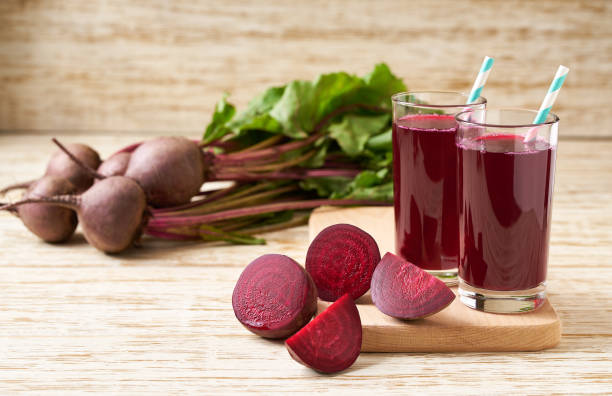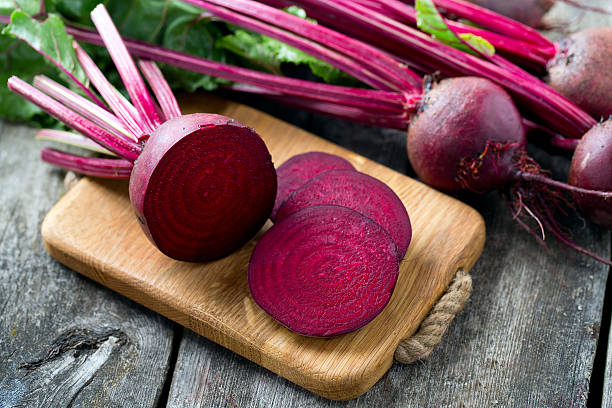Introduction The Great Beetroot Identity Crisis
Have you ever stared at a beetroot and wondered, “Wait… is this thing a fruit or a vegetable?” You’re not alone! Millions of people worldwide chew on beetroot in salads, smoothies, and juices without even knowing its real category. Some call it a veggie, others sneak it into fruit juices like it’s part of the fruity gang. The confusion is real, and honestly, beetroot isn’t helping by looking all mysterious in its dark red outfit. This article will clear all doubts in a funny yet scientific way while also uncovering why this humble root deserves more respect than it gets. Spoiler alert: it’s not about being fruity or veggie it’s about being extraordinary
1: Fruits vs Vegetables – Let’s Settle the Debate
Before we put beetroot on trial, let’s quickly recall what makes a fruit and what makes a vegetable. A fruit is basically the mature ovary of a flowering plant—anything that comes from the flower and contains seeds (think apples, mangoes, or even cucumbers). Vegetables, on the other hand, are edible plant parts like roots, stems, and leaves. Beetroot doesn’t have seeds inside its edible portion. Instead, we eat its root—making it scientifically a vegetable. So technically, beetroot is not fruit. But here’s the twist: nutritionally, it behaves like both! Sweet like fruit, earthy like veg—a true identity crisis. No wonder people get confused when they meet this red fellow on their plate
2: Why Beetroot Tastes Sweet Like Fruit
If beetroot is a vegetable, then why does it taste sweet like a fruit? Here’s the fun part—beetroot has natural sugars that make it taste like nature’s candy. That’s why beetroot juice is often mixed with apple, carrot, or orange juice—it blends in perfectly with fruits! But don’t mistake sweetness for fruitiness. Carrots are sweet too, yet no one calls them fruit. Beetroot just happens to be one of those vegetables that trick your taste buds into thinking it’s fruity. This sweet nature is also why athletes love beetroot juice before workouts—it’s a natural sugar boost without processed junk. So while your tongue says “fruit,” science says “vegetable.”
3: Beetroot in Science – A Root of Confusion
Let’s get nerdy for a second. Botanically, beetroot belongs to the Amaranth family (Amaranthaceae) and its scientific name is Beta vulgaris. It’s classified as a root vegetable because the part we eat grows underground, storing energy in the form of sugars and nitrates. Fun fact: the leaves of beetroot (called beet greens) are also edible, so technically beetroot gives you both a veggie root and leafy greens. Fruits, however, always grow from flowers and contain seeds, which beetroot does not. Still confused? Imagine this: if you bury an apple in soil, it doesn’t grow into more apples. But bury a beetroot, and boom—you can grow more beets. That’s vegetable behavior right there

4: Beetroot in the Kitchen – Fruit Roles, Veggie Duties
Walk into a juice bar and you’ll find beetroot sitting proudly next to oranges, pineapples, and apples, as if it’s a fruity cousin. But in traditional cooking, it’s treated strictly as a vegetable—boiled, roasted, stir-fried, or pickled. Beetroot plays both roles: in salads and smoothies, it acts like a fruit, but in curries, soups, and even cutlets, it shines as a vegetable. It’s like that one friend who can crash any party and still blend in. Sweet in juices, savory in curries—beetroot has dual citizenship in the kitchen, which explains why people argue about its true identity
5: Nutritional Benefits That Beat the Debate
Whether fruit or vegetable, one thing is clear—beetroot is a nutritional powerhouse. Packed with folate, vitamin C, potassium, and fiber, it helps improve blood circulation, lowers blood pressure, and even boosts stamina. The magic lies in its dietary nitrates, which convert into nitric oxide in the body, relaxing blood vessels and improving heart health. Athletes call it “nature’s pre-workout” because it enhances endurance. On top of that, its antioxidants (betalains) fight inflammation and support detox. So really, it doesn’t matter if beetroot is fruit or veg—what matters is that it’s a health booster hiding under that deep red skin.
6: Funny Myths Around Beetroot Identity
Let’s be honest—beetroot has fueled some pretty hilarious debates. Some people argue, “If it’s sweet, it must be fruit!” while others claim, “It grows underground, so duh, vegetable.” A few even call it a “fruit-vegetable hybrid” (like tomato, which technically is a fruit but used as a vegetable). Beetroot isn’t confused—it knows it’s a root veg. It’s humans who overthink it. Some funny myths include: eating too much beetroot turns you into a vampire because of its red color (spoiler: it just makes your pee pink, nothing supernatural). Or that beetroot is a fruit cousin of strawberries (nope, nice try)
7 Final Verdict – So, What Is Beetroot Really
Drumroll, please! The final answer is beetroot is a vegetable. Specifically, it’s a root vegetable, not a fruit. Its sweetness may confuse you, its juice may team up with fruits, and its looks may even fool kids into thinking it’s candy, but scientifically, beetroot belongs firmly to the vegetable world. However, its versatility makes it more than just a vegetable. It’s a superfood that acts like fruit and veg at the same time. So the next time someone asks, Is beetroot a fruit or vegetable you can confidently reply It’s a vegetable pretending to be fruit—and winning at both
Disclaimer
The tips and suggestions mentioned in this article are intended for general informational purposes only. Before starting any fitness program, making changes to your diet, or trying any remedies related to health conditions, please consult your doctor or a qualified healthcare professional. Dr. You does not verify or endorse the authenticity of any such claims made herein

